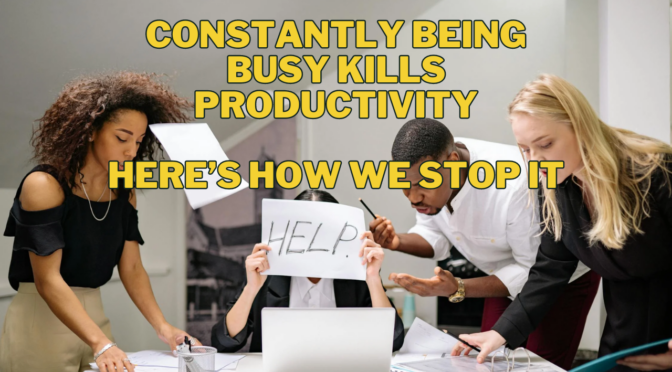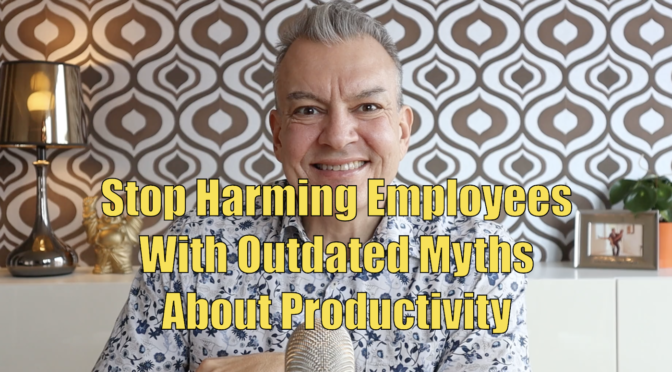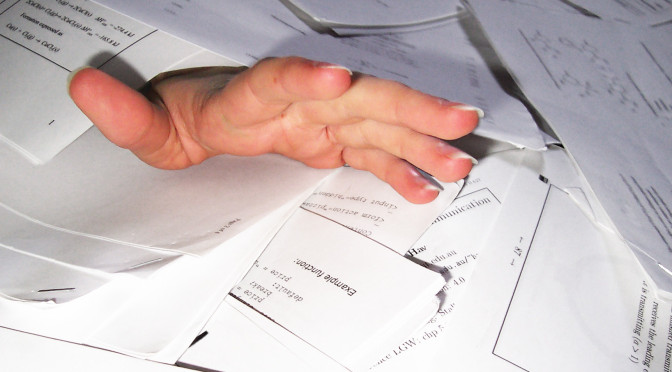
Lisa was falling behind at work. Every morning she woke up nervous about the workday ahead of her. Every evening she went home thinking of all the tasks she hadn’t gotten around to.
Lisa is a 35-year old engineer and project manager at a Danish IT company. With business booming, keeping up had become a struggle – she felt she had to run really fast, to just to stay in place.
With her in-box overflowing and people all around her clamoring for assistance on their projects, she started to look at various productivity tools and systems and quickly settled on the one she’d use. As is typical for Lisa, once she’s decided to do something, she does it, and with new ways of tracking time, improved todo-lists and prioritizing her work, she did notice that she was getting more work done.
But she still felt, that she could be more productive. While she was thinking about her next step, it struck her: Some of what she did, she hated doing.
While she generally enjoyed her job, especially helping people plan their projects and advising them on the best ways to move forward, some of her tasks were administrative in nature. Tracking progress, updating various statics, generating reports, etc… . They didn’t take up that much of her time – but they were a lot less fun. Let’s face it: to Lisa, they were boring as hell.
She talked to her boss about it, and they decided to give those tasks to a project secretary. This freed up a little time for Lisa, but mostly it allowed her to work on those parts of her job that she really liked. Consequently Lisa became a lot happier at work – and THAT’S when her productivity sky-rocketed. Now she had the energy to connect with her people and the creativity to think up and implement new ideas. Instead of feeling stressed and harried, she was optimistic and positive.
While her productivity system had definitely helped her get more done, the productivity boost she got from being happy at work was many times bigger. Lisa is now working way less hours – and getting much more done. And most importantly, she’s enjoying work a lot more!
If you want to get more done at work, the productivity gurus out there will tell you that it’s all about having the right system. You need to prioritize your tasks, you must keep detailed logs of how you spend your time, todo-lists are of course essential, you must learn to structure your calendar and much, much more.
But that’s not where you should start. You should start by liking what you do.
The single most efficient way to increase your productivity is to be happy at work. No system, tool or methodology in the world can beat the productivity boost you get from really, really enjoying your work.
I’m not knocking all the traditional productivity advice out there – it’s not that it’s bad or deficient. It’s just that when you apply it in a job that basically doesn’t make you happy, you’re trying to fix something at a surface level when the problem goes much deeper.
Here are the 10 most important reasons why happiness at work is the #1 productivity booster.
1: Happy people work better with others
Happy people are a lot more fun to be around and consequently have better relations at work. This translates into:
- Better teamwork with your colleagues
- Better employee relations if you’re a manager
- More satisfied customers if you’re in a service job
- Improved sales if you’re a sales person
2: Happy people are more creative
If your productivity depends on being able to come up with new ideas, you need to be happy at work. Check out the research of Teresa Amabile for proof. She says:
If people are in a good mood on a given day, they’re more likely to have creative ideas that day, as well as the next day, even if we take into account their mood that next day.
There seems to be a cognitive process that gets set up when people are feeling good that leads to more flexible, fluent, and original thinking, and there’s actually a carryover, an incubation effect, to the next day.
3: Happy people fix problems instead of complaining about them
When you don’t like your job, every molehill looks like a mountain. It becomes difficult to fix any problem without agonizing over it or complaining about it first. When you’re happy at work and you run into a snafu – you just fix it.
4: Happy people have more energy
Happy people have more energy and are therefore more efficient at everything they do.
5: Happy people are more optimistic
Happy people have a more positive, optimistic outlook, and as research shows (particularly Martin Seligman’s work in positive psychology), optimists are way more successful and productive. It’s the old saying “Whether you believe you can or believe you can’t, you’re probably right” all over again.
6: Happy people are way more motivated
Low motivation means low productivity, and the only sustainable, reliable way to be motivated at work is to be happy and like what you do. I wrote about this in a previous post called Why “motivation by pizza” doesn’t work.
7: Happy people get sick less often
Getting sick is a productivity killer and if you don’t like your job you’re more prone to contract a long list of diseases including ulcers, cancer and diabetes. You’re also more prone to workplace stress and burnout.
One study assessed the impact of job strain on the health of 21,290 female nurses in the US and found that the women most at risk of ill health were those who didn’t like their jobs. The impact on their health was a great as that associated with smoking and sedentary lifestyles (source).
8: Happy people learn faster
When you’re happy and relaxed, you’re much more open to learning new things at work and thereby increasing your productivity.
9: Happy people worry less about making mistakes – and consequently make fewer mistakes
When you’re happy at work the occasional mistake doesn’t bother you much. You pick yourself up, learn from it and move on. You also don’t mind admitting to others that you screwed up – you simply take responsibility, apologize and fix it. This relaxed attitude means that less mistakes are made, and that you’re more likely to learn from them.
10: Happy people make better decisions
Unhappy people operate in permanent crisis mode. Their focus narrows, they lose sight of the big picture, their survival instincts kick in and they’re more likely to make short-term, here-and-now choices. Conversely, happy people make better, more informed decisions and are better able to prioritize their work.
The upshot
Think back to a situation where you felt that you were at peak performance. A situation where your output was among the highest and best it’s ever been. I’m willing to bet that you were working at something that made you happy. Something that you loved doing.
There’s a clear link between happiness at work and productivity. This only leaves the question of causation: Does being productive make us happy or does being happy make us productive? The answer is, of course, yes! The link goes both ways.

But the link is strongest from happiness to productivity – which means that it if you want to be more productive, the very best thing you can do is focus on being happy with what you do?
So how do you get to be happy at work? There are two ways, really:
- Get happy in the job you have. There are about a million things you can do to improve your work situation – provided you choose to do something, rather than wait for someone else to come along and do it for you.
- Find a new job where you can be happy. If your current job is not fixable, don’t wait – move on now!
Related:












